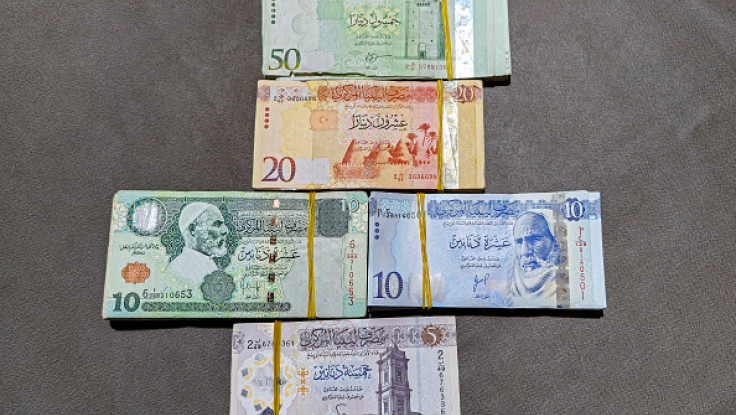Libyans are facing a steep drop in purchasing power following the sudden devaluation of the national currency, as the country grapples with prolonged political division and economic instability.
Earlier this month, the Central Bank of Libya reduced the official value of the dinar by 13.3 percent—the second such adjustment in five years—raising the official exchange rate from 4.48 to 5.56 dinars per U.S. dollar. In the black market, the rate surged from 6.90 to 7.80 dinars per dollar, further driving up import costs and consumer prices.
Experts attribute the dinar’s depreciation to unsustainable public spending by Libya’s two rival governments, both locked in a long-standing power struggle. The country remains split between a UN-backed administration in Tripoli and an eastern-based government aligned with General Khalifa Haftar.
Despite possessing Africa’s largest oil reserves, Libya has struggled to recover from the chaos following the 2011 uprising that toppled Muammar Gaddafi. Its economy remains heavily reliant on oil exports, with minimal domestic production in other sectors, forcing heavy dependence on imported goods, including food and medicine.
The latest economic shock has deepened everyday hardships for Libyan citizens. “It has become hard to keep up with our needs for food, medicine, transportation, education and bills,” said Karim Achraf, a 27-year-old engineer and father of three in Tripoli. “We can’t trust our governments with our economy and safety.”
The United Nations Support Mission in Libya (UNSMIL) has voiced concern over the economic crisis, urging both governments to take immediate steps to stabilize the economy. “Swift action is essential to reduce the negative impact on the Libyan people,” UNSMIL said in a statement, emphasizing the growing strain on living costs and public trust in state institutions.
Central Bank Governor Naji Issa recently met with leaders from both governments to discuss possible reforms. The eastern administration, led by Oussama Hamad, has expressed willingness to meet with Tripoli-based Prime Minister Abdulhamid Dbeibah to prioritize national interests and ease citizens’ suffering.
The devaluation has sparked public outcry, with protesters gathering outside the central bank in Tripoli. While some direct blame at the bank, others argue it is being unfairly scapegoated for decisions beyond its control.
Economist Mahmoud El-Tijani described the central bank as a “victim of executive failure and political fragmentation,” adding that the devaluation was a last-resort move to avoid economic collapse and external debt.
Libya’s central bank, like other state institutions, has long been caught in the country’s political divide. Until recently, it operated with two competing branches—one in Tripoli and one in the east—each issuing its own currency. The bank’s former governor fled in 2023 amid escalating tensions, prompting the UN to broker a deal that led to Issa’s appointment.
Jalel Harchaoui of the Royal United Services Institute said the devaluation reflects deeper systemic issues, pointing to “enormous, arbitrary, and unsustainable” public spending decisions made by Libya’s fractured leadership. “Blaming the central bank is pure populism,” he said, calling it a “scapegoat” in a wider political and economic crisis.


